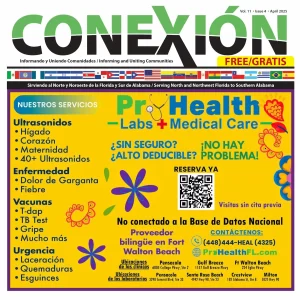
Father’s Day is in June. Therefore, June is Men’s Health Month. Did you know that men die five year younger than women? Men pay less attention to their health, tend not to have insurance which cause them to die at higher rates from preventable dieases. These facts shorten the time they can be involved fathers, uncles, grandfathers or caretakers.
All of us can work at being healthier. Sine this is Men’s Health Month – let us start with dad. The following recommendations come from the Agency for Healthcare Research and Quality. AHRQ
Get the Screenings You Need
Screenings are tests that look for diseases before you have symptoms. Blood pressure checks and tests for high blood cholesterol are examples of screenings.
You can get some screenings, such as blood pressure readings, in your doctor’s office. Others, such as colonoscopy, a test for colon cancer, need special equipment, so you may need to go to a different office.
After a screening test, ask when you will see the results and who you should talk to about them.
Abdominal Aortic Aneurysm
If you are between the ages of 65 and 75 and have ever been a smoker, (smoked 100 or more cigarettes in your lifetime) get screened once for abdominal aortic aneurysm (AAA). AAA is a bulging in your abdominal aorta, your largest artery. An AAA may burst, which can cause dangerous bleeding and death.
An ultrasound, a painless procedure in which you lie on a table while a technician slides a medical device over your abdomen, will show whether an aneurysm is present.

Colon Cancer

Have a screening test for colorectal cancer starting at age 50. If you have a family history of colorectal cancer, you may need to be screened earlier. Several different tests can detect this cancer. Your doctor can help you decide which is best for you.
Depression.

Your emotional health is as important as your physical health. Talk to your doctor or nurse about being screened for depression, especially if during the last 2 weeks:
- You have felt down, sad, or hopeless.
- You have felt little interest or pleasure in doing things.
Diabetes
Get screened for diabetes (high blood sugar) if you have high blood pressure or if you take medication for high blood pressure.
Diabetes can cause problems with your heart, brain, eyes, feet, kidneys, nerves, and other body parts.


Hepatitis C virus (HCV).
Get screened one time for HCV infection if:
- You were born between 1945 and 1965.
- You have ever injected drugs.
- You received a blood transfusion before 1992.
If you currently are an injection drug user, you should be screened regularly.
High Blood Cholesterol
If you are 35 or older, have your blood cholesterol checked regularly with a blood test. High cholesterol increases your chance of heart disease, stroke, and poor circulation. Talk to your doctor or nurse about having your cholesterol checked starting at age 20 if:
- You use tobacco.
- You are overweight or obese.
- You have diabetes or high blood pressure.
- You have a history of heart disease or blocked arteries.
- A man in your family had a heart attack before age 50 or a woman, before age 60.


High Blood Pressure
Have your blood pressure checked at least every 2 years. High blood pressure can cause strokes, heart attacks, kidney and eye problems, and heart failure.
Lung Cancer
Talk to your doctor or nurse about getting screened for lung cancer if you are between the ages of 55 and 80, have a 30 pack-year smoking history, and smoke now or have quit within the past 15 years. (Your pack-year history is the number of packs of cigarettes smoked per day times the number of years you have smoked.) Know that quitting smoking is the best thing you can do for your health.
- You use tobacco.
- You are overweight or obese.
- You have diabetes or high blood pressure.
- You have a history of heart disease or blocked arteries.
- A man in your family had a heart attack before age 50 or a woman, before age 60.


HIV
If you are 65 or younger, get screened for HIV. If you are older than 65, ask your doctor or nurse whether you should be screened.
Overweight and Obesity
The best way to learn if you are overweight or obese is to find your body mass index (BMI). You can find your BMI by entering your height and weight into a BMI calculator, such as the one available at: http://www.nhlbi.nih.gov/guidelines/obesity/BMI/bmicalc.htm.
A BMI between 18.5 and 25 indicates a normal weight. Persons with a BMI of 30 or higher may be obese. If you are obese, talk to your doctor or nurse about getting intensive counseling and help with changing your behaviors to lose weight. Overweight and obesity can lead to diabetes and cardiovascular disease.

Get Preventive Medicines If You Need Them

Vitamin D to Avoid Falls. If you are 65 or older and have a history of falls, mobility problems, or other risks for falling, ask your doctor about taking a vitamin D supplement to help reduce your chances of falling. Exercise and physical therapy may also help.
Immunizations:
- Get a flu shot every year.
- If you are 60 or older, get a shot to prevent shingles.
- If you are 65 or older, get a pneumonia shot.
- Get a shot for tetanus, diphtheria, and whooping cough. Get a tetanus booster if it has been more than 10 years since your last shot.
- Talk with your health care team about whether you need other vaccinations. You can also find which ones you need by going to: http://www.cdc.gov/vaccines.
Take Steps to Good Health
Be physically active and make healthy food choices. Learn how at http://www.healthfinder.gov/HealthTopics/Category/nutrition-and-physical-activity.
Get to a healthy weight and stay there. Balance the calories you take in from food and drink with the calories you burn off by your activities.
Be tobacco free. For tips on how to quit, go to http://www.smokefree.gov. To talk to someone about how to quit, call the National Quitline: 1-800-QUITNOW (784-8669).
If you drink alcohol, have no more than two drinks per day if you are 65 or younger. If you are older than 65, have no more than one drink a day. A standard drink is one 12-ounce bottle of beer or wine cooler, one 5-ounce glass of wine, or 1.5 ounces of 80-proof distilled spirits.
As Father’s Day nears—and even more that all of us can do to help men all year. Let’s start with Dad:
- Encourage dad to get a physical.See your healthcare provider for regular screenings.
- Encourage dad to get physical. start a routine exercise program like regular walks, riding bicycles, jogging, or swimming. Sounds simple but not always easy to maintain program. Doing it as family helps.
Be healthy, live long and prosper. Have a Happy Father’s Day.



